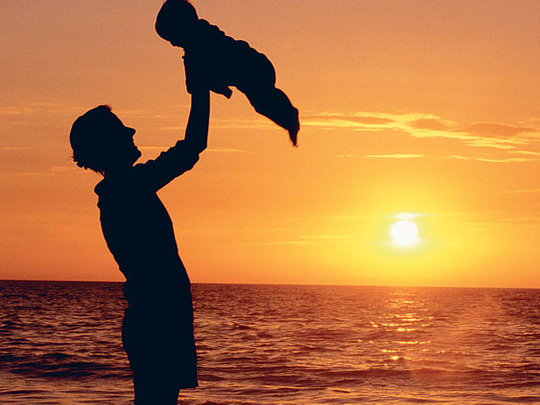
Abu Dhabi: Officials and specialists say parents should make sure their child's daycare centre is licensed and has an open-door policy regarding parental visits. They agree the strategy is to prevent child abuse.
However, some parents disagree. They say children cared for in intimate relationships arranged by their parents may fare better than those in government-registered nurseries.
A. M. Ahmad, a working mother of three, was opposed to government intervention in daycare arrangements.
For two years, she dropped off her four-year-old daughter at a home-based daycare facility run by a housewife (who watched up to 15 children).
Ahmad noticed her daughter became highly stressed, had difficulties with emotions, and showed what she called signs of depression.
A psychiatrist said her daughter had been subject to many forms of abuse, which flooded her with stress-related hormones.
Possible sexual abuse was allegedly traced to the unlicensed facility.
The mother tried to file a complaint with the Ministry of Social Affairs. However, her complaint was turned down as the ministry had no authority over unlicensed nurseries. She was advised to report the incident to the police.
Sexual abuse is the least frequently reported form of child abuse.
No chances
Parents should not take a chance putting their children in illegal child care homes operating across the country, warned Moza Al Shoumi, director of the Department of Children at the Ministry of Social Affairs.
"Many childcare facilities are home-based and in business illegally. These operations are unlicensed and there is no real regulation going on. There is nobody inspecting as the Ministry of Social Affairs has no authority to monitor them. These illegal daycare centres are just run at private homes, which are not under the ministry's mandate," Al Shoumi said.
"Illegal babysitting is a growing problem because there are fewer licensed daycare facilities, in spite of higher demands for care," The law, she said, bans home-based babysitting and nurseries or daycare facilities must have certificates from the ministry.
Al Shoumi said this is not a call for people to report their neighbours to authorities for babysitting each other's children. "The law targets illegal babysitting businesses run at homes, not arrangements made by friends or neighbours."
Al Shoumi said licensed centres must abide by a host of inspections, safety requirements, criminal background checks and training of staff. Parents and guardians also have a right to inspect.
At licensed centres, only women are allowed to be in direct contact with children. "Childcare licensing is providing certain reassurances to parents, that certain checks have happened before they have dropped their child off," Al Shoumi said.
Facilities are subject to surprise inspections and staff must undergo training.
"Leaving your children with an illegal home-based provider can be very dangerous because there are no checks of those facilities and children might be injured or subject to abuse," she said.
The Ministry of Social Affairs has received several reports from parents of child injuries and abuse.
Some parents don't know about the law, Al Shoumi said, and some ignore it, because illegal centres might be cheaper.
Dr Isis Badawi, head of psychology department at the Behavioural Sciences Pavilion of Shaikh Khalifa Medical City said the danger of illegal daycare centres is that there is no control over what takes place.
"While some of them may function well and provide adequate care for children, others may not have the adequate space, personnel, or equipment necessary to provide children with a safe and stimulating environment," Dr Badawi added.
Strict criteria
She noted that daycare centres that function under the supervision of a governmental body have strict criteria for space requirements, the safety of toys and equipment used, as well as requirements for the background and qualifications of the care providers. In centres that operate illegally, safety concerns are left up to the parents.
Dr Badawi held parents responsible for ensuring that their children are well cared for irrespective of where they are placed.
"They need to know as much as possible about the daycare centre and the child rearing philosophy of the care providers. For example, they need to know the policies regarding corporal punishment and other forms of discipline. Parents should visit unannounced to view what takes place in the centre on a regular basis. They ought to listen to their children's remarks about the centre and about the various individuals they interact with."
Dr Badawi stressed parents must also observe their children's behaviour.
"Any sudden changes in attitude or behaviour needs to be explored further by asking the child to tell the parent more within a calm supportive atmosphere. Children are often made to feel afraid by perpetrators of abuse. The best way to learn if anything unusual has taken place is for the parents to talk to their children often."
Dr Mona Al Bahar, the head of the Emirates Sociological Association, says a child act and a federal council are needed to protect children against all forms of abuse committed by parents, other caregivers, or society.
Dr Al Bahar suggested child welfare policies should be undertaken not only by policymakers but also by psychologists, doctors and social workers.









